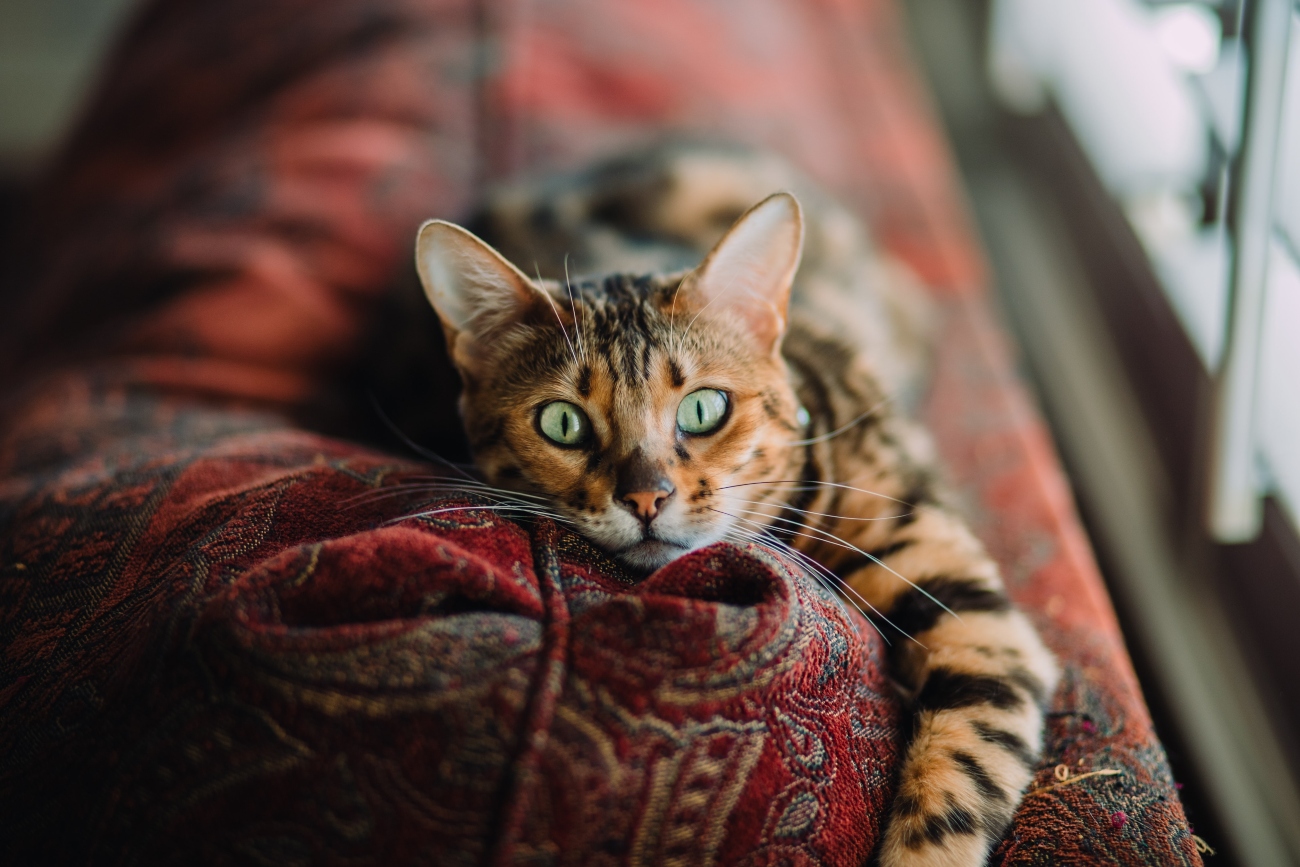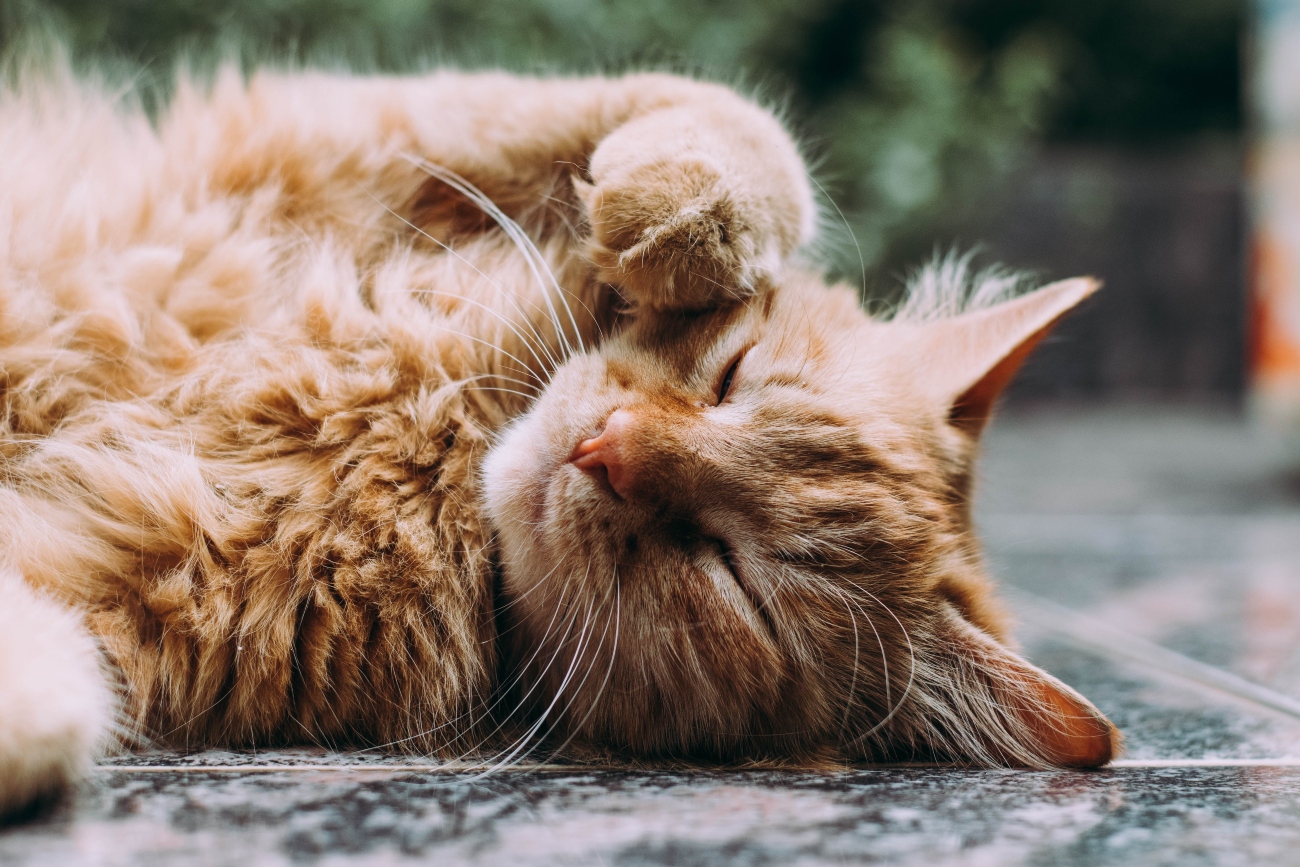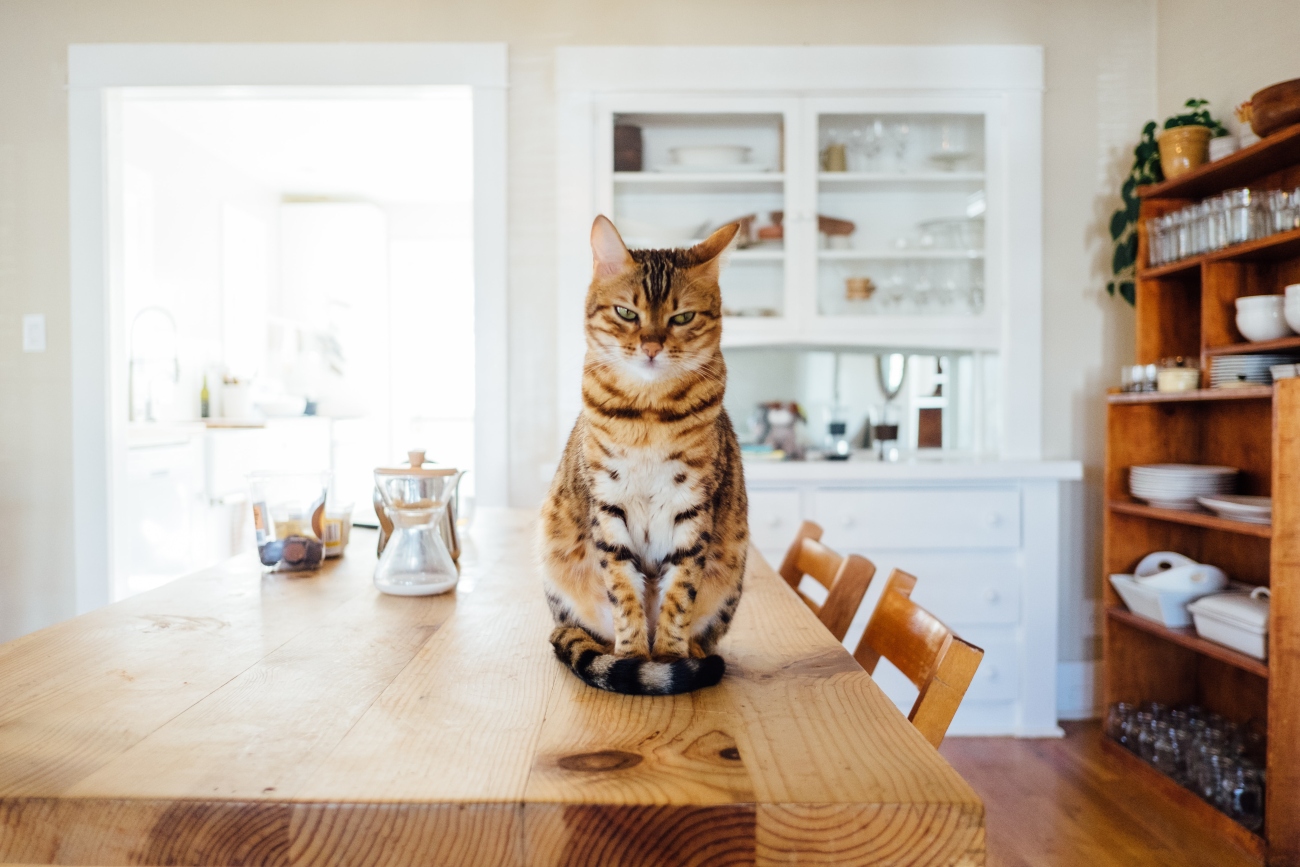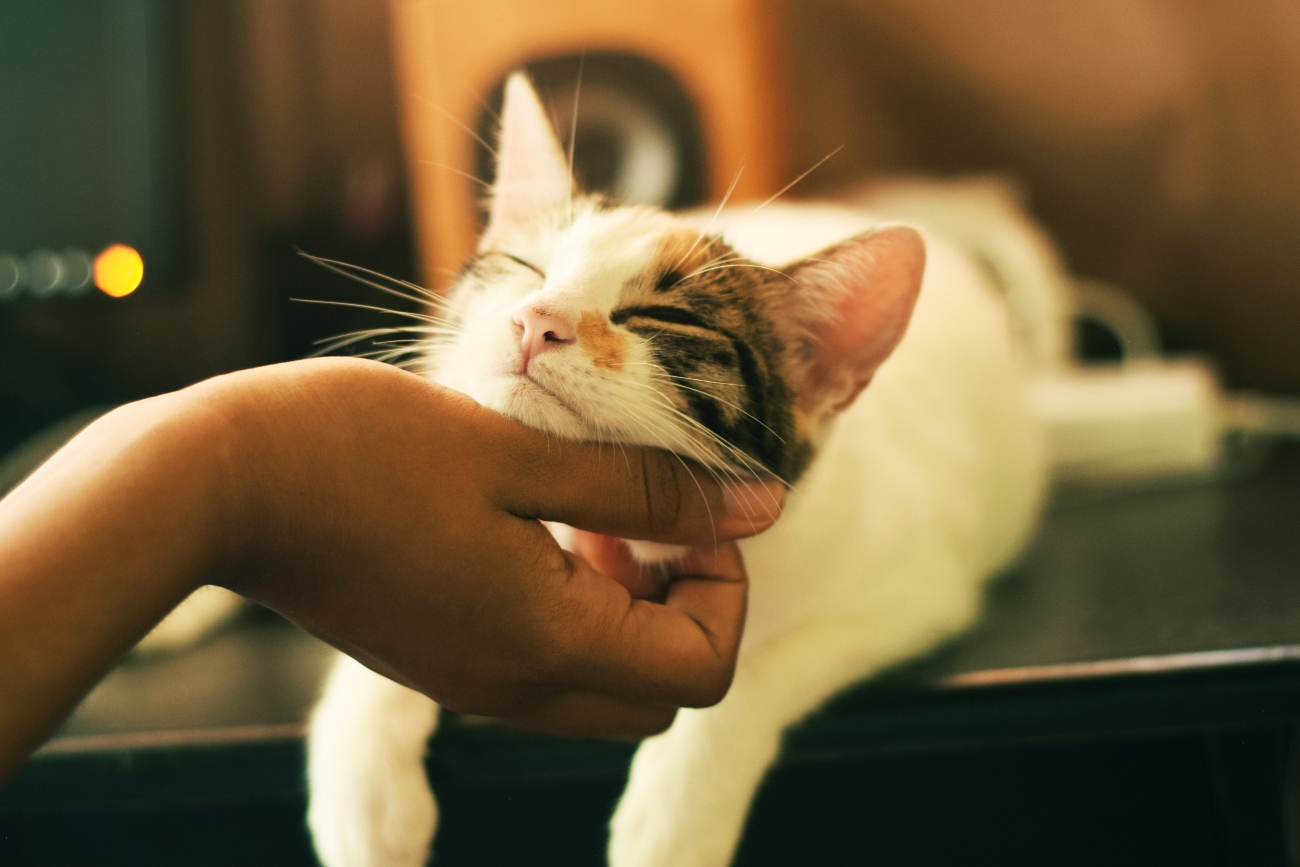
Why do old cats get skinny?
12th November, 2021
Have you noticed your old cat losing weight? Do they seem to be getting worryingly thin? Whether they seem to have lost all interest in food or are eating more than ever, as cats age many can become decidedly bony. If you’re wondering why, then you’ve come to the right place! From how to spot weight loss to possible causes, we’ve got it all covered here.
And if you’re looking for older cat insurance then we can help you with that, too! Just give our caring team of insurance specialists at Petwise a call and get your senior cat protected. We’re cat lovers, too, and know how important it is to protect a beloved feline friend.

Why might your old cat get skinny?
There can be many possible reasons for any cat to get skinny. According to the PDSA, common causes of weight loss in cats include:
- Worms – Intestinal worms steal food from your cat and cause damage to the gut lining.
- Dental disease – Your cat might simply be eating less because it’s just too painful to chew. A regular dental checkup is a vital part of senior cat care.
- Hyperthyroidism – Cats suffering from this disease still gobble up their food, but become skinnier and skinnier.
- Lack of food – Is another pet stealing your cat’s food before they can eat it? Keep watch to discover the culprit. Unfortunately, as cats get older, they can become less able to defend their territory and resources like food. Read our recent guide on how much food an old cat needs and find out some top tips on feeding senior cats.
- Kidney disease – As cats get older, their kidneys might not be quite as good at filtering out waste products. These can soon build up in their bloodstream. And as your cat gets sicker, they drink more, eat less, and lose weight.
- Anxiety, stress, or depression – Cats under psychological stress may go off their food. This can end up leading to significant weight loss.
- Diabetes – This disease, which may be caused by a failure to produce the hormone insulin or an impaired ability to respond to it, often causes a change in appetite and weight loss in cats.
- Cancer – Although not all weight loss in older cats is caused by cancer, it can be a common culprit so shouldn’t be ignored.
- Feline infectious peritonitis – This virus, which most commonly occurs in cats raised in catteries, is known to cause weight loss.
Other illnesses can also cause weight loss. These include liver disease, pancreatitis, inflammatory bowel disease, and viral infections such as Feline Immunodeficiency Virus (FIV) and Feline Leukaemia Virus (FeLV).

How to spot weight loss in your older cat
If your older feline experiences rapid weight loss and suddenly gets skinny then it’s often quite easy to spot and investigate. However, when the weight loss happens more gradually over a longer period of time it’s much more difficult. If you think your cat is losing weight, then keep an eye out for other common symptoms such as:
- Changes in eating habits – Whether eating more or eating less. This can also be difficult to spot if you have other animals who might be hoovering up the uneaten food when you’re not looking.
- Vomiting and/or diarrhoea – A one-off occurrence probably isn’t anything to worry about. But speak to your vet if it happens more frequently or they appear unwell.
- Urinating or drinking more than usual – A noticeable change is always worth investigating. It may be nothing but it could be something more serious.
- Lethargy – Cats do like to sleep, but if they seem low in energy or quieter than usual it might be worth calling the Petwise 24-Hour Vet Helpline for advice.
- Poor coat condition – We all know how fastidious cats are when it comes to fur maintenance. An untidy coat could show they’re not feeling themselves.
- Being very vocal and more demanding than usual – They’re trying to communicate to you in the only way they know how.
- Looking bony – Especially around the back legs and spine is a sign they’re losing weight.
- Drooling and/or bad breath – Dental problems can slowly lead to lost weight if they’re having problems eating.
Always get in touch with your vet if you think your cat has lost weight – even if they’re not yet ‘skinny’. Similarly to if you have a dog that is rapidly losing weight, always get in touch with a vet. By arranging specialist older cat insurance before any signs of illness start, you’ll be sure to get all the support you need to care for them.

How to check your cat’s weight
It’s fairly straightforward to get a good idea of your cat’s weight using your bathroom weighing scale. Simply follow these easy steps:
- Turn on your weighing scale.
- Weigh yourself holding your cat and take a note of your combined weight.
- Weigh yourself alone and take a note of your weight.
- The difference between the two numbers is your cat’s weight.
A good way to keep an eye on their weight visually is to use the PDSA 'body condition score chart'. The chart uses simple pictures to help you assess where your cat is on the scale from ‘very thin’ to ‘obese’. It really is very easy to use and an invaluable tool to help you decide if your cat is a healthy weight.
For example, a very thin cat is shown to have:
- Very little muscle
- Standing out ribs, backbone and hipbones
- No body fat
Your vet will also weigh your cat at their annual health check, but it’s good for you to be able to do it at other times.
Get a quick quote for older cat insurance from Petwise
At Petwise, we want the same as all pet lovers do – for cats to stay fit and healthy well into their senior years. That’s why there’s no upper joining age limit for our older cat insurance.
With a choice of seven cover levels, you’re sure to find one that suits both your budget and requirements. Dental cover is also included as standard on all policies.
Other benefits include specialist senior cat food, farewell cover and a bereavement helpline for when the inevitable does happen.
Finding senior cat insurance couldn’t be simpler – get a quick quote today.